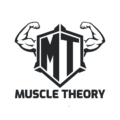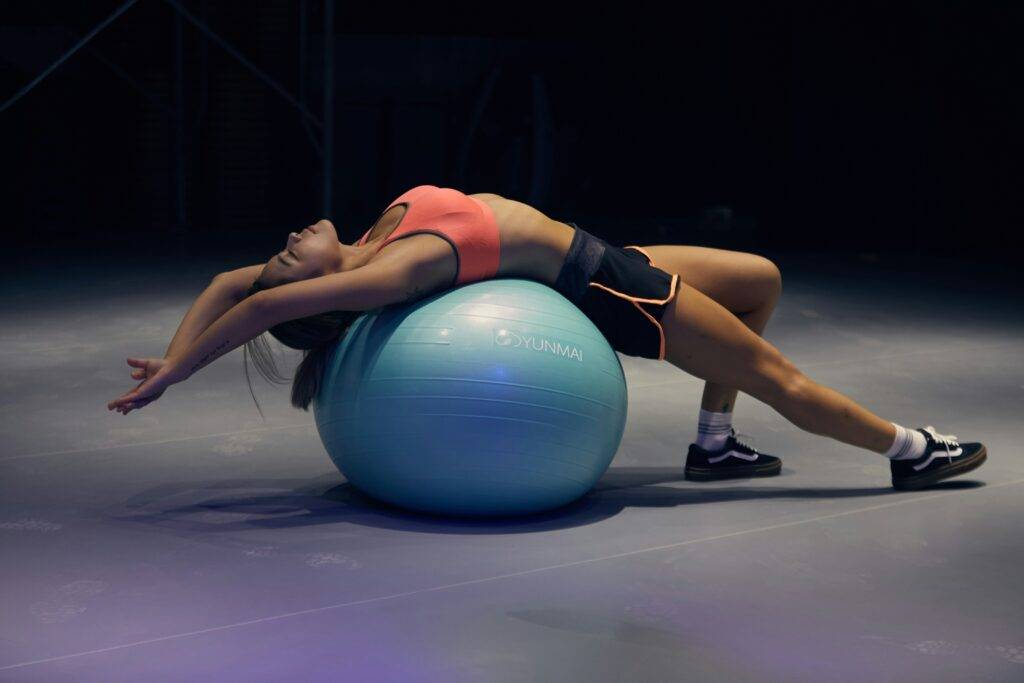Discover my top 3 picks for the Best Creatine Supplement for Postmenopausal Women to boost muscle strength, support lean body mass, and improve brain function.
When I started researching ways for women to increase their energy and muscle strength after menopause, I felt excited. However, I also felt a little overwhelmed. Creatine, a popular dietary supplement is known for increasing muscle mass. I wondered if it could really help women with muscle health and bone strength during this important time in their lives.
Today, I want to share my research and personal thoughts. I believe creatine is one of the best supplements for women after menopause.
Why Creatine Matters in Menopause
Menopause brings many changes, including fluctuations in hormones that affect everything from the menstrual cycle to bone density. As estrogen levels decrease, many women lose lean body mass. They also see changes in body composition and a higher risk of osteoporosis. These changes not only impact physical strength but also overall well‐being, including brain function and mood.
Our bodies make creatine from amino acids. You can also find it in foods like red meat.
Creatine is a dietary supplement that helps with muscle energy and recovery. However, studies have shown that women tend to have lower stores of creatine compared to men. This difference makes creatine supplements appealing to postmenopausal women. They want to protect their muscle mass and support bone health.
I learned from sources like TaraMD’s post and research from the University of Regina that creatine is important. It helps maintain body composition and can even improve brain function.
How Creatine Works
Before diving into the best products, it helps to understand how creatine works. Creatine is a compound made from amino acids such as arginine, glycine, and methionine. Our muscles store creatine as phosphocreatine. During high-intensity exercise, this molecule quickly replenishes adenosine triphosphate (ATP), the body’s energy currency.
By doing so, creatine not only increases muscle power and performance but also supports recovery after workouts. In turn, this increases muscle strength, helps to increase lean body mass, and even improves body composition.
Moreover, creatine isn’t just for physical performance. Some research indicates that creatine supplementation can also support brain function and may alleviate some effects of sleep deprivation. A single supplement with a daily dose of as little as 5 grams can have such widespread benefits, which is quite fascinating!
Addressing Common Concerns: Side Effects and Weight Gain
Many people worry about side effects when starting a new supplement. With creatine, the most common “side effect” is weight gain.
This weight gain usually comes from water retention, not fat increase. This temporary weight gain happens because creatine pulls water into your muscles. This helps support muscle function.
This water retention is helpful. It keeps creatine in your muscles. This supports muscle recovery and strength training.
- It’s important to know that creatine is safe when taken in the right amounts.
- The usual dose is 3 to 5 grams per day.
- This should be done after a loading phase. Many studies show that creatine has few side effects. The most common side effect is mild stomach discomfort if taken in very high doses.
The Role of the Loading Phase and Daily Dose
Some of you might have heard about the “loading phase” of creatine supplementation. In the loading phase, you usually take a higher dose of 20–25 grams each day. We split this dose into 4 smaller doses. You do this for 5–7 days to quickly fill your muscle creatine stores.
After your muscles are full, you switch to a maintenance phase. In this phase, you take about 3–5 grams each day.
For postmenopausal women, research shows that a gradual approach can work well. This is especially true if you combine your supplement with regular strength training. If you don’t want to do a loading phase, taking 5 grams daily will build up creatine in your muscles over time.
Creatine and Strength Training: A Perfect Pair
One of the reasons I became a big advocate for creatine supplementation was its synergy with strength training. When you engage in regular strength training, your muscles need extra energy to recover and grow.
Supplement with creatine helps muscles recover and boosts muscle protein production. This can lead to more lean body mass and greater strength. This is particularly crucial after menopause, when you may notice that your muscles are not as strong as they used to be.
Beyond the Gym: Creatine’s Impact on Brain Function
What’s even more exciting is that creatine isn’t just for building muscle. Emerging research points to its benefits for brain function as well.
Creatine helps support energy use in the brain. This can improve thinking skills and reduce problems from lack of sleep. This is incredibly valuable during menopause when hormonal changes can sometimes affect mood and mental clarity.
Studies show that taking creatine may help lessen the effects of sleep loss. It can also improve memory and support brain health.
A Comparison of Top Creatine Supplements for Postmenopausal Women
After looking through many studies and product reviews, I picked a few top creatine supplements. I think these are great for postmenopausal women. Below is a table comparing some key features to help you decide which product might be the best for you.
| Product Name | Daily Dose (Maintenance) | Loading Phase Option | Key Benefits | Price Range | Certifications |
| Thorne Creatine | 5 g (1 scoop) | Optional loading phase recommended (20–25 g/day for 5–7 days) | Increases lean body mass, supports muscle strength, versatile mixability | $ (affordable) | NSF Certified for Sport, third-party tested |
| Nutricost Creatine Monohydrate | 5 g (per serving) | Loading phase optional; consistent daily dose effective | Helps improve body composition, supports muscle recovery and brain function | $$ (mid-range) | Third-party tested, pure creatine |
| Optimum Nutrition Micronized Creatine Capsules | 5 g (via capsules; approx. 4 capsules) | Loading phase possible but less common in capsule form | Convenient dosing, supports muscle performance and recovery | $ (affordable) | Informed Choice Certified |
Each of these products has its own advantages. For instance, Thorne Creatine is one of the best creatine supplements for postmenopausal women due to its purity and affordability, while Nutricost’s option is known for its efficacy and lack of additives. If you prefer capsules for ease of use, Optimum Nutrition offers a great alternative that still delivers the benefits of creatine supplementation.
My Personal Experience with Creatine
I started taking creatine a few months ago. I noticed my strength training sessions were not as satisfying as before. I chose to try a daily dose of 5 grams of creatine monohydrate. I read that this dose is safe and effective for most people.
At first, I was a bit skeptical about the possibility of weight gain due to water retention. I soon learned that any weight gain was temporary. It was mostly due to more water in the muscle cells. This extra water helps with muscle recovery and supports muscle function.
In time, I noticed improvements not just in my strength but also in my overall body composition. My muscles felt firmer, and my workouts felt more productive.
Additionally, I experienced an unexpected bonus: improved mental clarity. On days when I had trouble sleeping, I found that creatine helped my brain work better. This is a common issue for both men and women who balance many roles. I could focus more during meetings and felt more alert during my workouts.
How to Incorporate Creatine into Your Routine
Consult Your Healthcare Provider
Before starting any new supplement, especially during menopause, I always recommend talking with your doctor. This is particularly important if you have any pre-existing conditions or concerns about potential side effects.
Start with a Consistent Daily Dose
I began with a maintenance dose of 5 grams per day. You can mix this powder into water, your favorite smoothie, or even add it to your post-workout shake. Consistency is key for building up the stores of creatine in your muscles.
Consider a Loading Phase (Optional)
If you want quicker results, you might consider a loading phase where you take 20–25 grams per day for 5–7 days. However, if you’re worried about digestive discomfort or side effects, starting with a steady 5-gram daily dose is perfectly fine and will eventually yield similar benefits.
Pair It with Strength Training
Creatine works best when combined with regular strength training. I make it a point to engage in resistance exercises at least three times a week. This synergy not only increases muscle mass but also improves overall body composition.
Stay Hydrated
Since creatine works by drawing water into your muscles, it’s important to drink plenty of water throughout the day. This helps optimize its benefits and minimizes any risk of gastrointestinal side effects.
Monitor Your Progress
Keep track of your workout performance and any changes in muscle mass or overall energy. Many women find that gaining lean body mass and strength can motivate them. This helps them adjust their training routines.
Creatine’s Broader Implications for Postmenopausal Health
Beyond the gym, creatine supplementation has some intriguing implications for postmenopausal health. Let’s look at a few key areas:
Bone Health
Postmenopausal women have a higher risk of osteoporosis. This is because lower estrogen levels can decrease bone density.
Creatine, when used with strength training, may improve bone density and strength. Research from the University of Regina shows that creatine can also improve the shape of bones. This may help lower the risk of fractures.
Muscle and Body Composition
Maintaining lean body mass is critical as we age. Creatine supplementation increases muscle mass and helps improve body composition. It also boosts strength training performance. Over time, taking creatine can help reduce the natural loss of muscle during menopause.
Studies show that creatine enhances muscle strength and aids in muscle recovery. This support is important for daily activities and long-term health.
Brain Function and Mood
It’s not just about the muscles! Creatine also plays a vital role in brain function. Several studies have shown that creatine supplementation can improve cognitive function, particularly under conditions of sleep deprivation—a common issue during the menopausal transition. Improved brain function means better focus, memory, and overall mood, making creatine a promising supplement for mental clarity as well as physical strength.
Energy Metabolism
Creatine is central to energy production in both muscle and brain cells. For postmenopausal women, this means you have the potential to experience enhanced energy levels during workouts and daily activities. Whether you’re engaging in strength training or simply trying to stay active throughout the day, a steady daily dose of creatine can ensure that your energy stores are replenished efficiently.
Debunking Myths: Creatine and Weight Gain
One common myth is that creatine causes significant weight gain. As I mentioned earlier, the slight increase in weight that some people notice is primarily due to water retention in the muscle cells rather than an increase in fat. This temporary water weight is a sign that the creatine is working to hydrate the muscles, ultimately supporting muscle recovery and strength.
So if you’re worried about weight gain, remember that it’s not extra fat—it’s just a normal, beneficial response to supplementation.
Creatine and the Menstrual Cycle
Though much of the focus on creatine has been on its use in athletes, it’s interesting to note that its effects can vary across the menstrual cycle. Hormonal fluctuations during the menstrual cycle can influence muscle metabolism and creatine uptake.
Some research even suggests that creatine supplementation might help counteract the drop in creatine stores that can occur during certain phases of the cycle, thereby supporting muscle function consistently. While more research is needed to clarify these interactions, it’s an area that makes creatine supplementation even more intriguing for women.
Which is the Best Creatine Supplement for Postmenopausal Women?
After extensive research and personal trial, I believe the best creatine supplement for postmenopausal women is one that combines purity, proven benefits, and ease of use. Here are my top picks again:
Thorne Creatine
I love Thorne because it is pure creatine monohydrate, cost-effective, and comes with the reassurance of NSF Certification for Sport. This product is designed to increase lean body mass and support muscle strength without any unnecessary additives.
Nutricost Creatine Monohydrate
Nutricost offers a great balance of quality and value. It’s third-party tested and focuses on a single ingredient—creatine monohydrate—which studies have shown is the most effective form. This supplement is excellent for women who want to improve their body composition and muscle recovery.
Optimum Nutrition Micronized Creatine Capsules
For those who prefer capsules over powder, Optimum Nutrition provides a convenient option that still delivers all the benefits of creatine. It supports muscle performance and is easy to incorporate into a daily routine.
Each of these products has been vetted by experts and backed by studies that have shown that creatine is a safe and effective dietary supplement when taken as directed.
Final Thoughts: Embracing a New Chapter with Creatine
Navigating the postmenopausal years can feel like entering a new chapter filled with both challenges and opportunities. With the natural decrease in estrogen, many women experience changes in muscle mass, bone density, and overall energy. Creatine supplementation—when combined with regular strength training and a balanced diet—can be a powerful ally in preserving and even enhancing lean body mass and overall body composition.
What I appreciate most about creatine is that it supports muscle health and brain function simultaneously. Whether it’s by counteracting the effects of sleep deprivation or by helping to build muscle during resistance training, creatine truly supports muscle and cognitive health.
Remember, while creatine is a supplement with many benefits, it works best when it’s part of a holistic approach to health. This includes maintaining a diet rich in high-quality proteins (think red meat, fish, and other creatine-rich foods), engaging in regular strength training, and ensuring you get enough sleep. These lifestyle choices work together to support optimal energy metabolism, improve body composition, and maintain overall wellness.
If you’re considering trying creatine, I encourage you to do your research, consult with your healthcare provider, and start with a consistent daily dose (around 5 grams) to see how your body responds. Over time, you may find that this small addition to your supplement regimen not only increases muscle but also boosts your energy levels, sharpens your brain function, and even helps stabilize your mood.
In summary, creatine is more than just a fitness supplement. It’s a multifaceted tool that supports muscle strength, improves body composition, and aids brain function—all of which are critical for thriving in the postmenopausal years. With its proven benefits and minimal side effects, creatine is one of the best creatine supplements for postmenopausal women available today.
I hope my insights help you feel more empowered to take charge of your health. Remember, your wellness is a lifelong journey, and every step you take—from careful research to consistent strength training—brings you closer to a stronger, healthier you.
References used in this post include: TaraMD on Creatine for Women’s Health, University of Regina’s research on creatine and bone health, Healthline’s articles on creatine safety and brain function and Verywell Health’s guide on creatine dosing.
Further Reading: Discover More on Creatine for Menopausal Health
• Best Creatine Supplement for Menopausal Women
https://muscletheories.com/best-creatine-supplement-for-menopausal-women/
• What Brand of Creatine Is the Most Effective?
https://muscletheories.com/what-brand-of-creatine-is-the-most-effective/
• Creatine Benefits for Muscle Gain and Recovery
https://muscletheories.com/creatine-benefits-for-muscle-gain-and-recovery/
• Does Creatine Help With Brain Fog?
https://muscletheories.com/does-creatine-help-with-brain-fog/
• Does Creatine Affect Sleep? Uncover the Truth
https://muscletheories.com/does-creatine-affect-sleep-uncover-the-truth/

Mohammad Nazif Uddin is a Marketing and Supply Chain Management student and fitness enthusiast with over 5 years of bodybuilding experience. As the founder of Muscle Theory, he shares practical insights on fitness supplements to help others make informed choices and achieve their goals safely.

